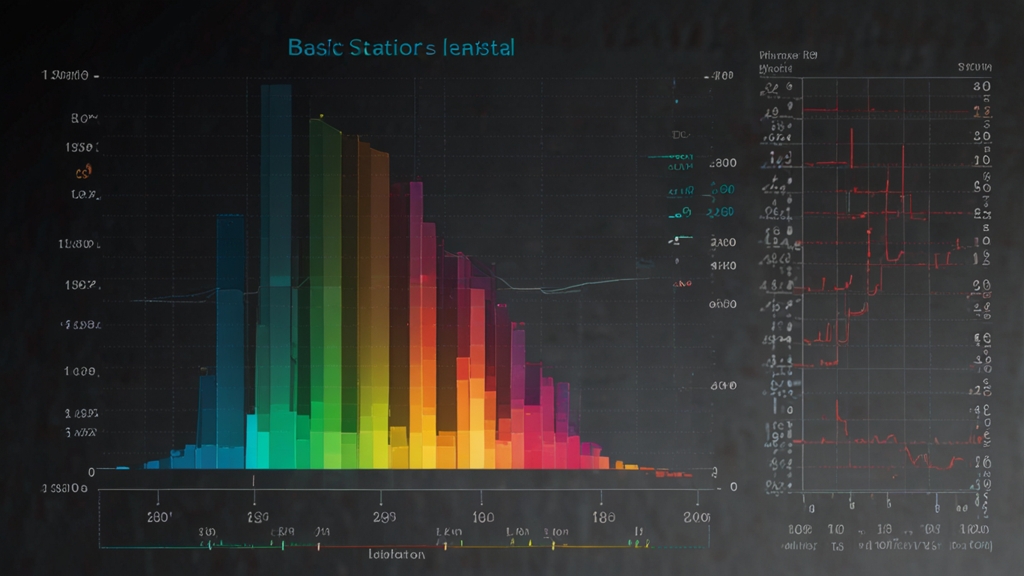Why Everyone Needs to Understand Basic Statistics
In today's data-driven world, understanding basic statistics is more essential than ever. Whether you are a student, a professional, or a curious individual, possessing statistical literacy can significantly enhance your decision-making capabilities. From interpreting news articles to making informed financial choices, basic statistical knowledge empowers you to analyze data, identify trends, and draw meaningful conclusions. This article explores the reasons why everyone should consider learning basic statistics and its profound impact on various aspects of life.
The Foundation for Informed Decision-Making
Statistics provide the tools to make sense of the vast amounts of data generated every day. For instance, when confronted with medical studies or economic reports, understanding the underlying statistics can help you assess the reliability and significance of the findings. A well-grounded knowledge in statistics allows you to distinguish between correlation and causation, spot potential biases, and understand the margins of error.
"Statistics are the grammar of science." - Karl Pearson
Karl Pearson's quote underscores the importance of statistics in various scientific fields. Just as grammar is fundamental to understanding language, statistics are crucial for decoding the language of data. This foundation is not just for scientists or researchers; it's valuable for everyone who needs to make well-informed decisions based on data.
Enhancing Critical Thinking Skills
One of the key benefits of understanding basic statistics is the enhancement of critical thinking skills. Statistics encourage analytical thinking, enabling you to ask the right questions and evaluate information more critically. For example, when reading a report claiming a new diet results in weight loss, a statistical background helps you scrutinize the sample size, control variables, and statistical significance of the results.
Furthermore, basic statistical concepts such as mean, median, standard deviation, and probability are instrumental in everyday reasoning. These concepts help you better understand and interpret the information around you, fostering a more inquisitive and skeptical mindset. In an age of misinformation and data manipulation, these skills are invaluable for navigating the complexities of modern media and communication.
Practical Applications in Everyday Life
Statistics are not limited to academic or professional fields; they have numerous practical applications in everyday life. For example:
- Personal Finance: Understanding interest rates, investment risks, and loan terms are all rooted in statistical principles, helping you make wiser financial choices.
- Health and Fitness: Analyzing fitness trackers, diet plans, and medical information relies on statistical interpretation to achieve better health outcomes.
- Consumer Choices: Whether it's comparing product reviews, evaluating customer satisfaction surveys, or understanding market trends, statistics play a crucial role in being a savvy consumer.
"Without data, you're just another person with an opinion." - W. Edwards Deming
W. Edwards Deming's insight highlights the power of data-driven decision-making. By equipping yourself with statistical knowledge, you move beyond mere opinions and base your conclusions on solid evidence.
Boosting Career Prospects
In the professional landscape, statistical knowledge is a prized skill across various industries. From marketing and finance to healthcare and engineering, the ability to analyze and interpret data is highly sought after. Employers value individuals who can derive actionable insights from data, enhancing business strategies, optimizing operations, and driving innovation.
Moreover, as technology advances, the demand for data literacy continues to grow. Professions such as data analysts, market researchers, and quality control specialists require a strong foundation in statistics. Even if your career path does not directly involve data analysis, statistical literacy can still set you apart by showcasing your ability to think critically and solve problems effectively.
Conclusion
In summary, understanding basic statistics is an essential skill that transcends academic boundaries and has far-reaching implications in everyday life. It empowers you to make informed decisions, enhances your critical thinking abilities, and opens up numerous professional opportunities. By learning the fundamentals of statistics, you equip yourself with the tools to navigate a world increasingly dominated by data, transforming how you perceive and interact with the information around you.








